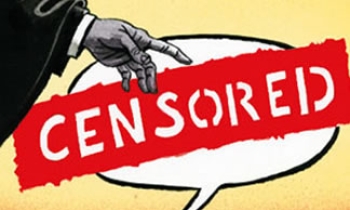The Daily News, Zimbabwe's largest selling newspaper that was banned eight years ago for criticising President Robert Mugabe, has hit the stands again. The Daily News was a strident critic of Mugabe. With presidential elections again expected later this year, the newspaper is hardly beating a retreat.
According to an Agence France-Presse (AFP) report, it went to the extent of asserting in its editorial on Friday, "We unapologetically declare that we will take a critical stand against bad governance and expose it for the entire nation to see. We won't stand by while rampant corruption and crass materialism disable both government and private sector. We will shout at the top of our voices when we detect abuse of power and political intolerance."
According to Managing Editor John Gambanga, the Harare-based newspaper was printed as a one-off edition and will be published daily from March 25.
The newspaper was re-issued a licence in May 2010 by the new Zimbabwe Media Commission. The commission allowed the newspaper to function right then, but it took close to 10 months for the daily to get back on tracks.
The fresh licence was granted in the wake of the Global Political Agreement that led to the unity government in 2009 following a power-sharing arrangement between Mugabe and arch-rival Morgan Tsvangirai as prime minister, raising hopes that human rights abuses would decrease. The latter even vowed to abolish the Access to Information and Protection of Privacy Act which banned foreign journalists from working permanently in the country and imposed stiff limits on local media. The Media Commission was established in December 2009 as part of the media reforms included in the deal between Mugabe's ZANU-PF and Tsvangirai's Movement for Democratic Change.
Zimbabwe had a vibrant Press till around 2002 when Mugabe introduced draconian laws and started clamping down on critical newspapers. The axe fell on the Daily News on September 12, 2003, when authorities closed the newspaper's office. Three staff members too were detained. This followed a Supreme Court ruling that held that the daily was "operating illegally under provisions of the repressive Access to Information and Protection of Privacy Act (AIPPA)." Under this Act, all media companies were required to register with the Media and Information Commission in order to operate.
The Daily News at that time was the only independent newspaper in the country.









